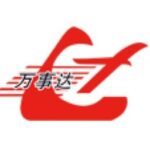On the European flat steel market for several weeks there is no significant changes. Hopes for a dramatic improvement in market conditions in the early fall until they are met. The steel company reported the appearance of interest in purchasing of steel products from distributors and end-users, but the real deals have is not enough. More or less significant volume of purchases was observed in the beginning of September only in the automotive industry.
In late summer the majority of European steel producers have not announced price increases for September, although some companies attempted to raise their quotes. The most successfully managed it to the Italian steelmakers benefiting from the uncertain situation around the country's largest steel plant Ilva, owned by the Riva Group. Although, apparently, this company will continue to work despite a number of judicial decisions that require its partial closure until the construction of new gas treatment facility, some Italian companies have increased the price of flat products (core products of Ilva) to 20-30 euros for T. In particular, the prices of hot rolled coils has increased from the previous 460-480 Euro to about 490 euros per ton EXW, and commercial steel plate rose from ranges from 520 to 540 to 530-550 euros per ton EXW.
In other countries of the region, producers had little success. On the contrary, consumers resumed purchases in late August ? the beginning of September, was able to obtain from suppliers certain concessions. In particular, in Germany the cost of hot rolled coils close to the mark of 500 Euro per ton EXW, although August could reach 520-530 euros per ton EXW.
A very significant factor for the European flat steel market to the outside competition. The Euro in recent days has risen to its highest level in more than three and a half months ? more than $1,27. On the one hand, undermines the export opportunities for the European flat rolled, for example, in Turkey, and, on the other, increases the attractiveness of imports.
At the end of August on the European market, a Chinese company offering hot rolled coils at € 460-465 / t CFR. Now the quotes for these products due to the appreciation of the Euro fell to less than 455 EUR per ton CFR. Ukrainian hot rolled is also offered in the countries of Eastern Europe a little more than 455 EUR per ton DAP. Russian companies have taken a pause, but, according to analysts, trading hot rolled coils in October they will start at the level of € 460-470 / t CFR/DAP (at the current Euro rate).
In General, the interest in imported products in Europe is not very high due to the long delivery time. For example, Chinese companies are now proposing to sign contracts for December and even January. While European consumers are hesitant to sign such a long-term agreement with the Chinese having a reputation as not very reliable partners. At the same time, the Russian and Ukrainian rental demand. In addition, using the appearance on the market of cheap imports, buyers are putting pressure on European steelmakers, requiring the lowering of the quotations for 10-20 euros per ton, According to preliminary data, some manufacturers agree to reduce the price.
According to the President of the regional metallurgical Association Eurofer, Wolfgang Eder (CEO of the Austrian company VoestAlpine), the European steel industry will never return to pre-crisis levels due to irreversible negative changes in the industry and construction complex of the European Union. In his view, European governments should begin the systematic dismantling of facilities for the production of steel and rolled products to balance supply and demand.
Such tough measures may not be superfluous. European governments with worthy the best application by persistence continue to pursue a policy of austerity, increasing unemployment and eroding consumer market. Therefore, some experts are already predicting the EU "lost decade" like the recession of the 90-ies in Japan, the collapse of the European financial market following the example of the default of a third world country in the 80s, or the repetition of the great Depression of 1929-1933, out of which was only possible thanks to the pre-war arms race.
Anyway, the significant growth of consumption of steel products in Europe in the near future is not expected. The seasonal factor is likely to play a role, but in a rather limited plan.
Victor Tarnavsky
Rusmet.ru
